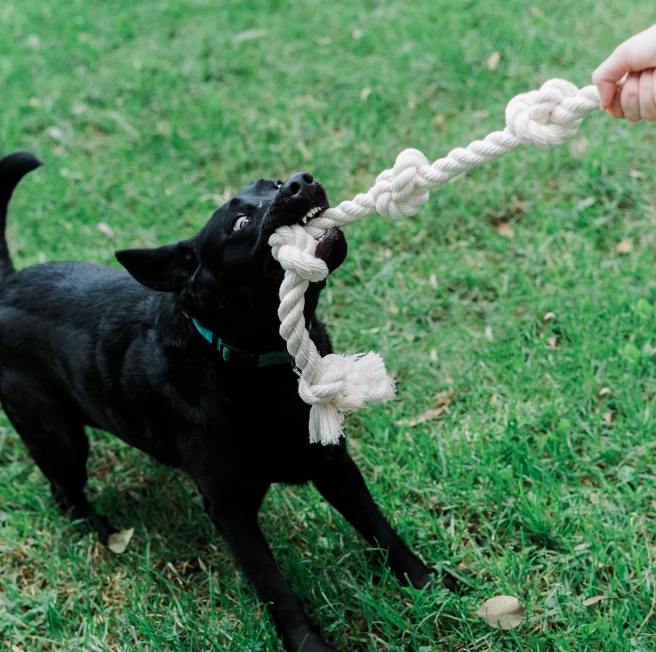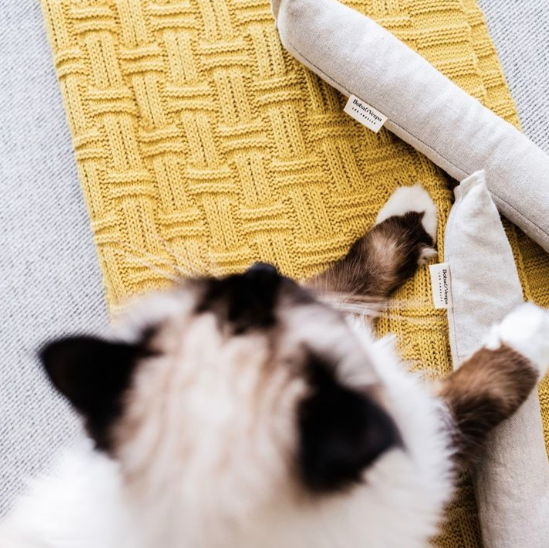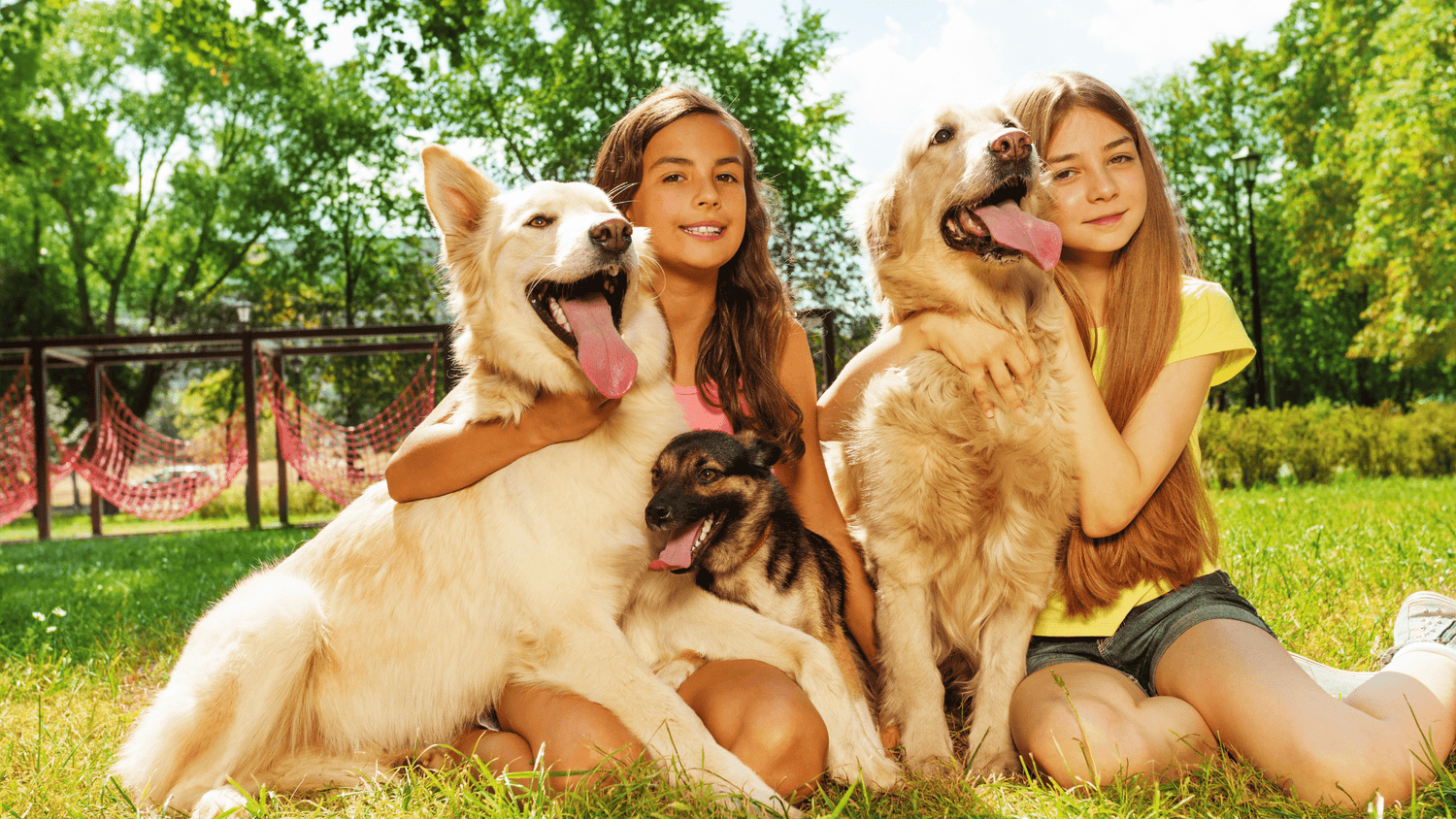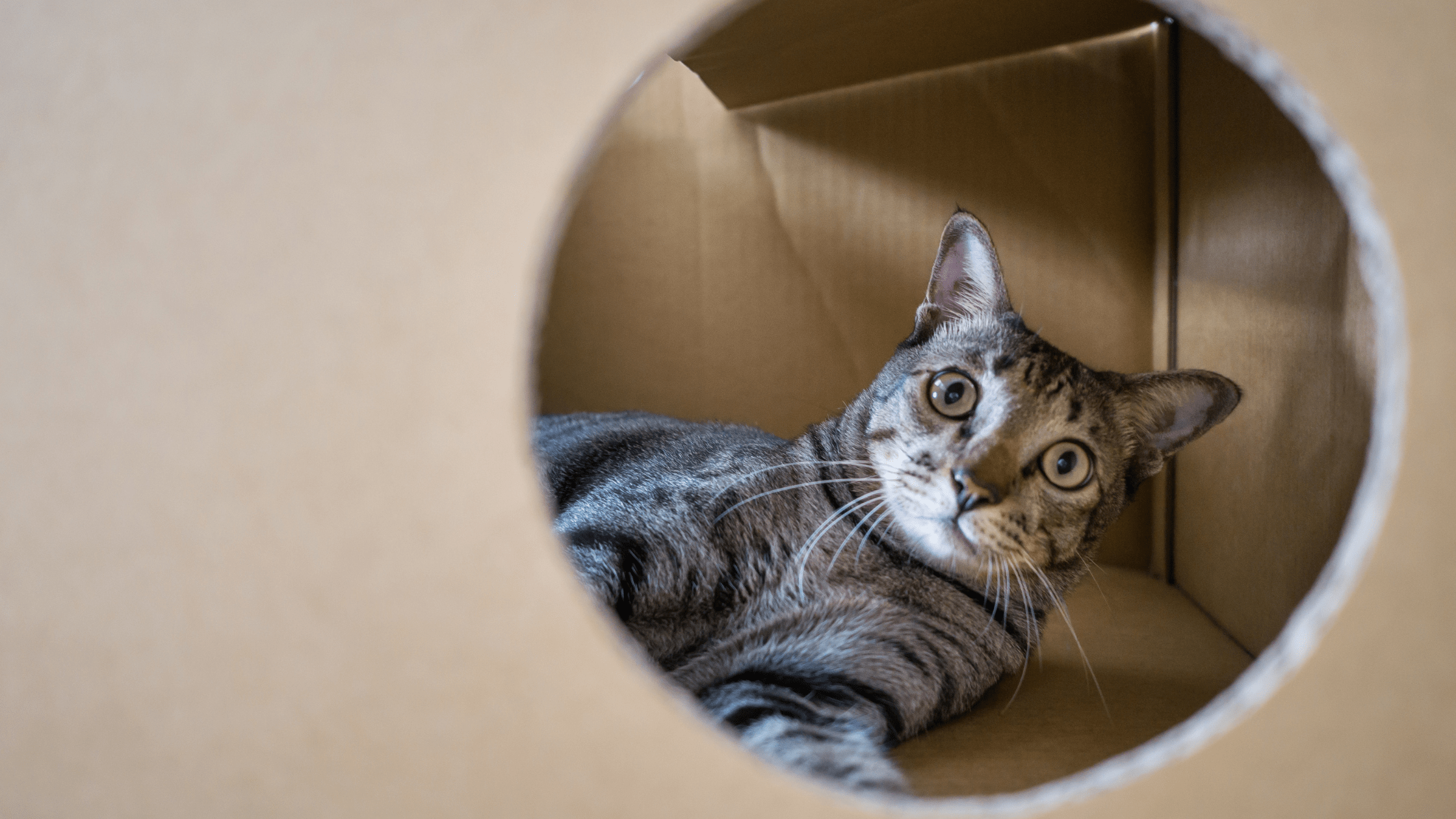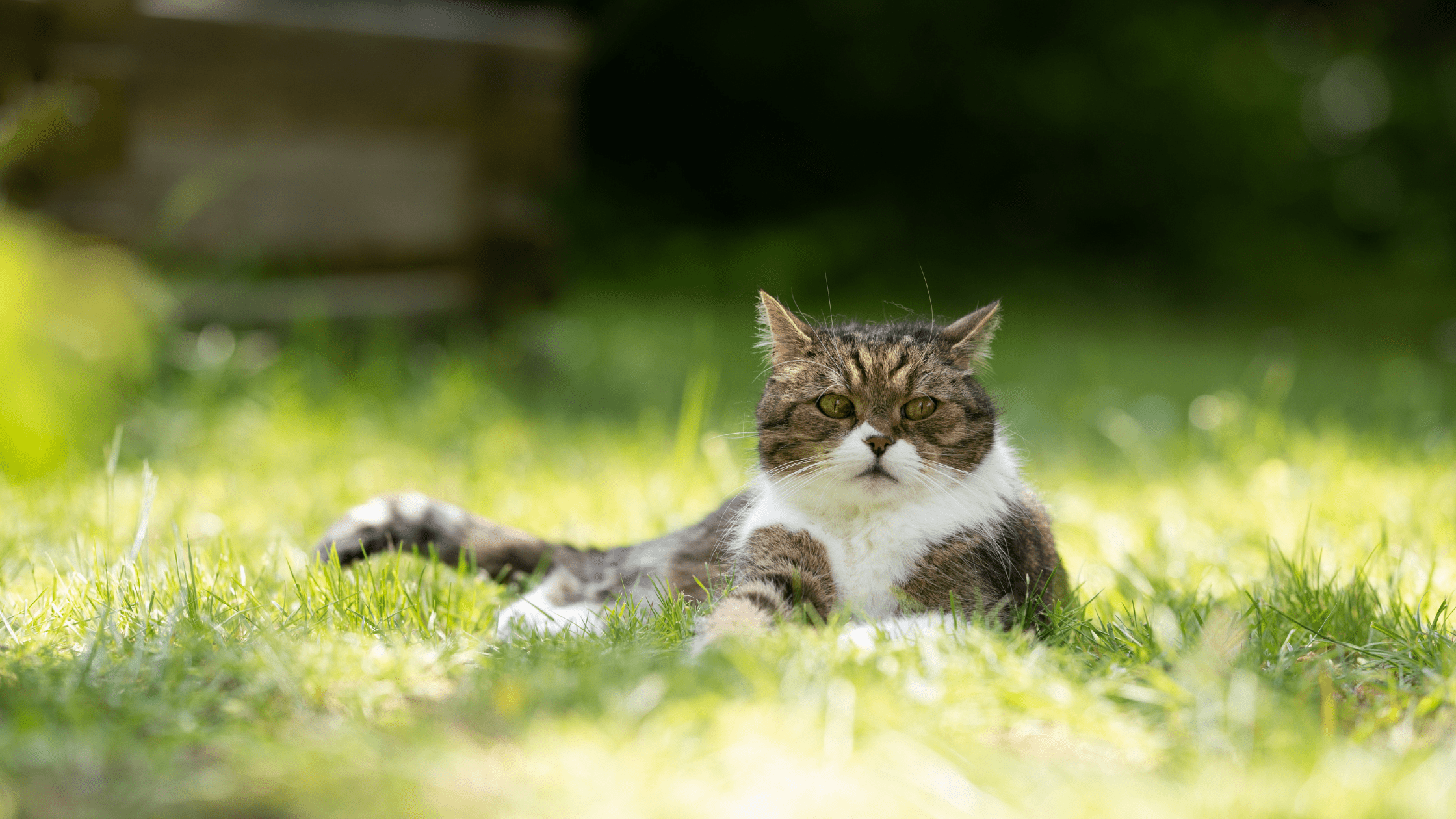UPDATED September 15, 2025
As fellow pet lovers, we can’t imagine life without our furry friends. They bring joy to our lives in so many ways, even reducing symptoms of depression and stress. So we owe our pets a lot, really. But we also owe so much to our planet.
Practicing sustainable pet care isn’t always the first thing we think of when we consider climate change and how to reduce our carbon footprint. But the truth is, pet environmental impact is HUGE! From the food we feed them (hello beef and lamb, the worst climate offenders) to how we dispose of their waste, everything adds up and can negatively impact our mother earth.
Now, we’re definitely not saying you have to give up your pet altogether, but we are encouraging you to become a more environmentally-conscious pet owner. Read on to discover 5 ways to practice sustainable pet ownership.
Shelters over Breeders
Many animal shelters have reached capacity meaning that cats and dogs are in need of loving homes. If you’re in the market for a pet and are concerned about sustainable pet care, why not consider rescuing one instead of buying from a breeder? Sadly, the designer puppy industry is creating more pets than we can sustain. My partner, Co-Founder Jennifer Roberge purchased a Doodle from a breeder without thinking through the impact over adopting and it's something that gives her reoccurring guilt. She adores Oakley and can't imagine life without him, but she has regret over not focusing their dog search to shelters only. However, as we like to mention often, we are all on our own sustainable journeys doing the best we can. So instead of focusing on where she got Oakley, she now tries to lower his carbon footprint in other ways like through waste and pet food because that's the best she can do now. When you choose to adopt instead of sourcing and paying for the pick of the litter, you’re providing a home for a very deserving animal and opening up space for another animal in need.
Spay and Neuter
To continue on the theme of what we said above, there are currently more pets on our planet than we can sustain. In the USA alone, approximately 70,000 puppies and kitties are born each day. While it sounds cute, the truth is that the world doesn’t need more puppies and kittens! Just take a look at the tens of thousands of cats and dogs currently in animal shelters to understand why. To help keep the pet population under control, to avoid overpopulating animal shelters (as well as to decrease animal abuse and euthanization rates) and to keep sustainable pet ownership in mind, we encourage you to spray and neuter your pet. Doing so will help decrease the amount of resources, energy, and food we spend on pets which is a win for our planet. Spayed and neutered animals enjoy longer lifespans as well, so it’s a win for your pet too!
Choose Better Pet Food
As a pet owner, it’s important to consider pet food sustainability. A staggering statistic is that pets are responsible for an estimated 20-30% of the population’s meat and fish consumption. Globally, pet food companies make an estimated $55 billion. The trend of feeding pets premium pet food like human grade and fresh delivered meals has certainly contributed to this. Many humans also have a tendency to overfeed their pets which isn’t good for their health and increases the amount of waste they produce. To choose better food options for your dog or cat, we suggest staying away from beef and lamb which are the worst climate culprits. Alternative proteins for pets like Turkey, chicken, pork, duck, fish and novel proteins like insects are far better choices. Cutting back on meat all together and going vegan or plant based a few days a week can be good for your pet too, but speak to your veterinarian first.
We also encourage you to think about the packaging for your pet food. there are more sustainable pet food packaging options. Buying pet food in bulk, think the bigger bag the better, will help cut down on packaging and preparation costs. If you can purchase from a locally-owned pet store even better as this will cut down greenhouse gas emissions from shipping. You can also make your own home cooked pet food with help from this veterinarian created food supplement for cats and dogs. What can be better than nutrient rich, local produce and meats straight from your neighborhood farms? It doesn't get more sustainable than that!
Check out our post to learn more: What Is the Environmental Impact of Pet Food?
And why not try to reduce your pet's carbon footprint by making Homemade Dog and Cat Treats (only 5 ingredients or less!)
Indoor vs Outdoor Cats
When your feline friend spends lots of time outdoors, their feral instinct is likely to kick in. This often results in the death of wildlife like birds. This puts a lot of pressure on wildlife, especially during nesting season. Then there is the waste issue. Outdoor cats will roam and poo where they like and cat waste near waterways can cause water blooms and sanitation issues in cities. And did you know, indoor cats tend to live longer? So, to protect our water and wildlife while still allowing your cat to roam outdoors, we suggest making your cat an indoor cat and getting them used to walking on a leash. Now we get it: leashed cat walks aren’t for everyone, but isn't it worth a try if it benefits our planet and the health of our pet?
Learn more in our post Is Having an Outdoor Cat Sustainable?
Dispose of Waste Properly
As mentioned above, pet waste left outside can contribute to many issues like bacteria blooms in waterways. So consider your pet's environmental impact and please always clean up after your pet. If your city allows it and you don’t have a septic tank, we love the idea of flushing poo. Jennifer always cleans up in her yard by scooping up Oakley’s poop, usually with toilet paper, and flushing it.
Sustainable pet ownership can also be as simple as opting for a biodegradable poop bag when cleaning up your pet’s waste. Composting is another option which can be wonderful when done well. Just be sure to read up on how to do it safely because pet waste contains loads of bacteria and parasites which you wouldn’t want in compost used for your edible garden. City compost rarely accepts pet waste, but please do check with your municipality.
We love these waste bag options:
Compostable Dog Waste Bags Made in the USA
Compostable Cat Litter Bags Made in the USA
Don't forget about cat litter. Clay based litters are toxic and deplete a lot of resources from the earth as it's made. Consider plant based litter like this naturally odor absorbent hemp litter instead.
Food for thought:
What are you already doing as a sustainable pet owner?
What next steps could you take to do better in terms of pet food sustainability, waste management, etc?
Is there one simple change you could make right now?
References:
https://petkeen.com/steps-towards-eco-friendly-sustainable-pet-ownership/
https://www.bchydro.com/news/conservation/2022/pet-sustainability.html
https://www.treehugger.com/pet-ownership-sustainable-4852528

